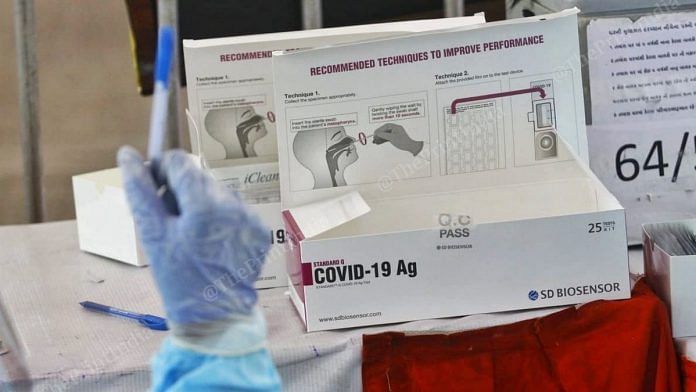New Delhi: Scientists across the world have been working round the clock to find ways to fight the novel coronavirus, more than six months after the Covid-19 outbreak began. The virus has so far claimed over 7 lakh lives all over the globe.
Here are some of the latest scientific findings on the Covid-19 front.
Common cold viruses may help body recognise, fight Covid
The immune system’s memory helper, T cells, which recognise common cold causing coronaviruses and help the body fight, also identifies some parts of the SARS-CoV-2, the virus that causes Covid-19.
The research, published in the journal, Science, says it may explain why some people have milder Covid-19 symptoms than others.
The T cells — which keep track of viruses they have seen before — help the body recognise and fight off repeat invaders.
The study builds on previous findings which have shown that 40 to 60 per cent of people never exposed to SARS-CoV-2 had T cells that reacted to the virus. Their immune systems recognised fragments of the virus it had never been exposed to before.
This revelation turned out to be a global phenomenon and was reported in people from the Netherlands, Germany, UK and Singapore.
While more data is needed to draw conclusive results, exposure to these less harmful common cold viruses could lead to immune memory against SARS-CoV-2.
Also read: Countries with BCG vaccine policy have slow Covid infection and death rates, US study finds
Low levels of Covid-linked enzyme in normal respiratory system
There is very little presence of the enzyme ACE2, which facilitates the entry of SARS-CoV-2 into our cells, in the normal respiratory system.
The study, published in Molecular Systems Biology evaluates the expression of angiotensin I converting enzyme 2 (ACE2) in more than 150 cell types.
In contrast to previous studies, researchers at Uppsala University found that ACE2 is expressed only in very low levels, if at all, in respiratory epithelial cells. Researchers said though previous studies have indicated that ACE2 protein is highly expressed in human lungs, these have not been reliably compared to ACE2 protein expressions in tissues and organs from the entire human body.
The results highlight the need for further study of the biological mechanisms responsible for Covid-19 infection and disease progression.
Early administration of tocilizumab improves Covid-19 outcome
Administering sarilumab or tocilizumab at an early stage can improve outcomes in Covid-19 patients, a US study has found.
Interleukin-6 (IL6ri) inhibitors, sarilumab or tocilizumab, are given to mediate severe inflammatory responses. The treatment was more effective when administered earlier in the disease course, reduced mortality rates as well as the need for intubation, according to the study published in the International Journal of Infectious Diseases.
Elevated levels of IL-6, a protein that causes inflammation, occur in patients with severe Covid-19 infection. The results show that interleukin-6 inhibitors appear to be a more effective treatment, if given early, compared to remedesvir and dexamethasone that are recommended and currently in use.
A decoy protein may help fight Covid-19 infection
Scientists have engineered a protein that can act a decoy for luring the SARS-CoV-2 away from the body’s ACE2 receptors.
To infect a human cell, a virus must first bind to a receptor protein on the surface of the cell. SARS-CoV-2 binds to a receptor called ACE2, which also plays a number of roles in regulating blood pressure, blood volume, and inflammation.
In a study published in Science, researchers describe the newly-engineered decoy protein that may serve as a potential therapeutic agent.
Administering the decoy protein may not only neutralise the infection, but also lead to an additional benefit of rescuing lost ACE2 activity and directly treating aspects of Covid-19, according to the researchers.
Also read: Effective contact-tracing, testing must if schools are to be reopened, Lancet studies say



